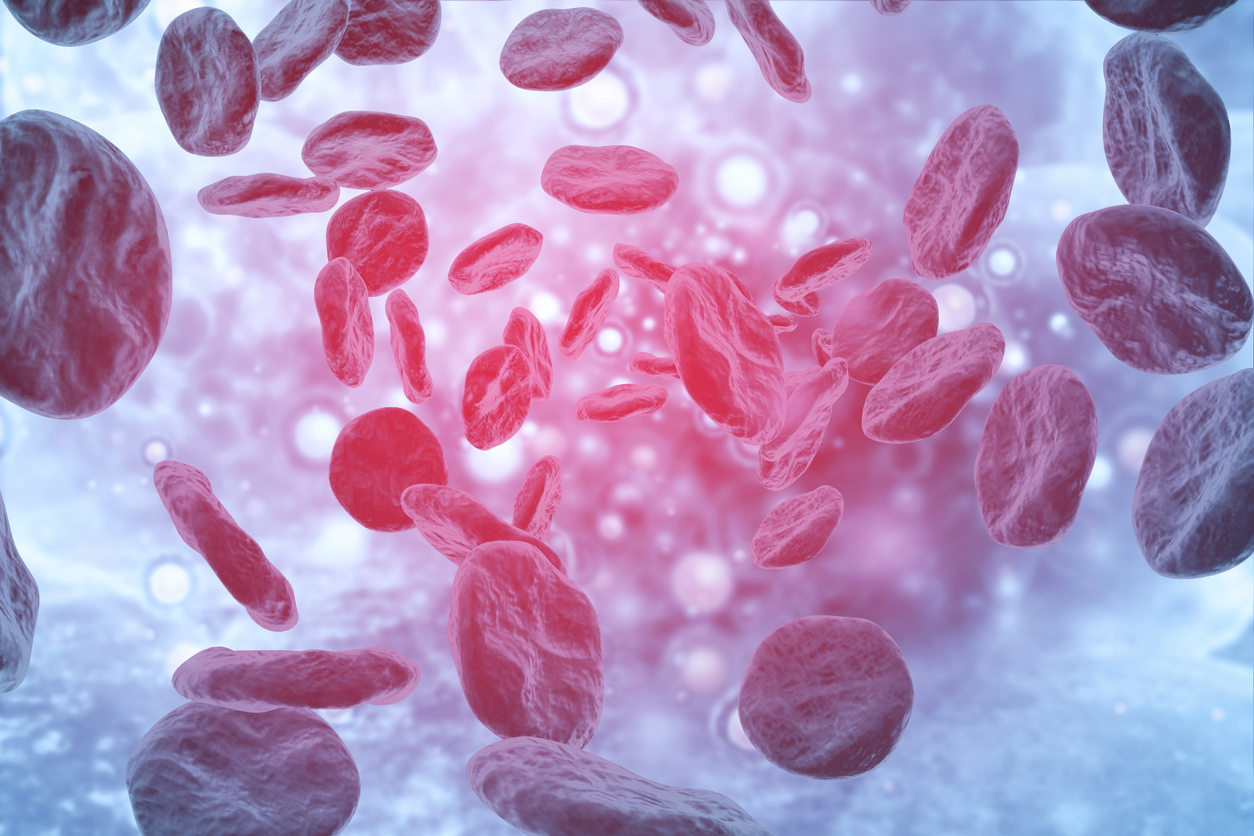Malignant Hematology Treatment in New Jersey, Connecticut, Massachusetts, and the Washington, D.C. Area
At Regional Cancer Care Associates, patients have access to a wide range of services for cancers of the blood and blood-forming tissues. Regional Cancer Care Associates patients in New Jersey, Connecticut, Massachusetts, and the Washington, D.C. area can receive the hematology services they need in a location convenient for them. Our hematologists treat blood-based cancers in state-of-the-art facilities and proudly maintain a compassionate, personalized approach to care.
We’re here for you. Call us at 844-346-7222 or
Overview of Malignant Hematology

A hematologic condition is one that affects the blood, and malignant hematology focuses on evaluating and treating types of blood cancers. Patients with malignant blood disorders are monitored closely after diagnosis and, depending on their diagnosis, may be treated with a variety of therapies, including immunotherapy and chemotherapy. Malignant hematologic disorders may involve the following:
- White blood cells
- Red blood cells
- Bone marrow
- Lymph nodes
At Regional Cancer Care Associates, our board-certified hematologists and full clinical team are dedicated to improving the quality of life and overall wellbeing of our patients. Our specialists are experienced in diagnosing different blood disorders and providing first-class treatment that’s based on the latest medical evidence and the individual needs of each patient.
Blood Cancers We Treat
In our state-of-the-art facilities, we treat patients with a broad spectrum of blood cancers, including the following types:

Myeloid (White Blood Cell) Disorders
White blood cells are vital to the body’s defense against infection. If the body produces an abnormal amount of white blood cells, this indicates a disorder. Myeloid disorders include:
- Congenital and cyclical neutropenia
- Hoyeraal-Hreidarsson syndrome
- Chédiak-Higashi syndrome
- Hyperimmunoglobulin E syndrome
- Chronic granulomatous disease
- Lysosomal storage diseases
Myeloproliferative Neoplasms (MPNs)
Myeloproliferative Neoplasms (MPNs) are disorders characterized by an overproduction of blood cells. They’re typically chronic and may produce significant symptoms in some patients. These conditions include:
- Myelogenous leukemia
- Polycythemia vera
- Primary myelofibrosis
- Systemic mastocytosis
- Hippel-Lindau syndrome
Myelodysplastic Syndrome
Myelodysplastic syndrome is a fairly common blood disorder in which blood cells in the bone marrow do not mature or develop into healthy blood cells. This condition frequently recurs in the elderly and is expertly monitored and treated in a variety of ways, depending on its severity.
Aplastic Anemia
This condition occurs when the body cannot produce enough new blood cells. Aplastic anemia ranges from mild to severe, may develop at any age, and can slowly progress over time.
Paroxysmal Nocturnal Hemoglobinuria
A rare, acquired disorder, paroxysmal nocturnal hemoglobinuria occurs when a change in stem cells causes the body to produce cells that are missing protective proteins. This results in the destruction of red blood cells (hemolysis), blood clots (thrombosis), and impaired bone marrow function.
Acute Myeloid Leukemia
Acute Myeloid Leukemia begins in the bone marrow and often quickly progresses into the blood. This condition can spread to other parts of the body, such as the lymph nodes, liver, and central nervous system.
Leukemia
This blood cancer originates in blood-forming tissues, which are found in places like the lymphatic system and bone marrow. It develops when blood cells grow and divide out of control, crowding healthy blood cells and leading to a decrease in platelets, red blood cells, and white blood cells. While the exact cause is unknown, scientists believe leukemia is the result of environmental and genetic factors. Symptoms vary depending on the type of leukemia, with the most major types including:
- Acute lymphocytic leukemia (ALL)
- Acute myelogenous leukemia (AML)
- Chronic lymphocytic leukemia (CLL)
- Chronic myelogenous leukemia (CML)
Lymphomas and Hodgkin's Disease
Also known as Kahler’s disease, multiple myeloma forms in the bone marrow’s plasma cells, a type of white blood cell that helps the body fight infection. Considered a malignant plasma cell disorder, the condition is characterized by groups of abnormal plasma cells dividing and multiplying, leading to kidney, bone, and immune system damage and decreasing a patient’s red blood cell count.
ADDITIONAL LINKS
RCCA offers cutting-edge treatment options for every type of cancer. Our expert care teams can match you with the treatment plan that fits your needs. LEARN MORE
Improve your quality of life and learn to manage life with cancer through our integrative services. We offer several solutions to support and promote physical, mental, emotional, and spiritual health. LEARN MORE
The field of cancer treatment is constantly improving and evolving. RCCA conducts hundreds of clinical trials that can help develop new therapies and treatment plans. LEARN MORE
Get the Cutting-Edge Medical Care You Need
If you or a loved one needs treatment for a malignant blood disorder, access advanced care from Regional Cancer Care Associates. Our personalized, patient-focused hematology services extend throughout our wide provider network across NJ, CT, MA, and the Washington, D.C. area. To schedule an appointment or learn more about our malignant hematology treatments, contact us today.

Regional Cancer Care Associates is one of fewer than 200 medical practices in the country selected to participate in the Oncology Care Model (OCM); a recent Medicare initiative aimed at improving care coordination and access to and quality of care for Medicare beneficiaries undergoing chemotherapy treatment.








